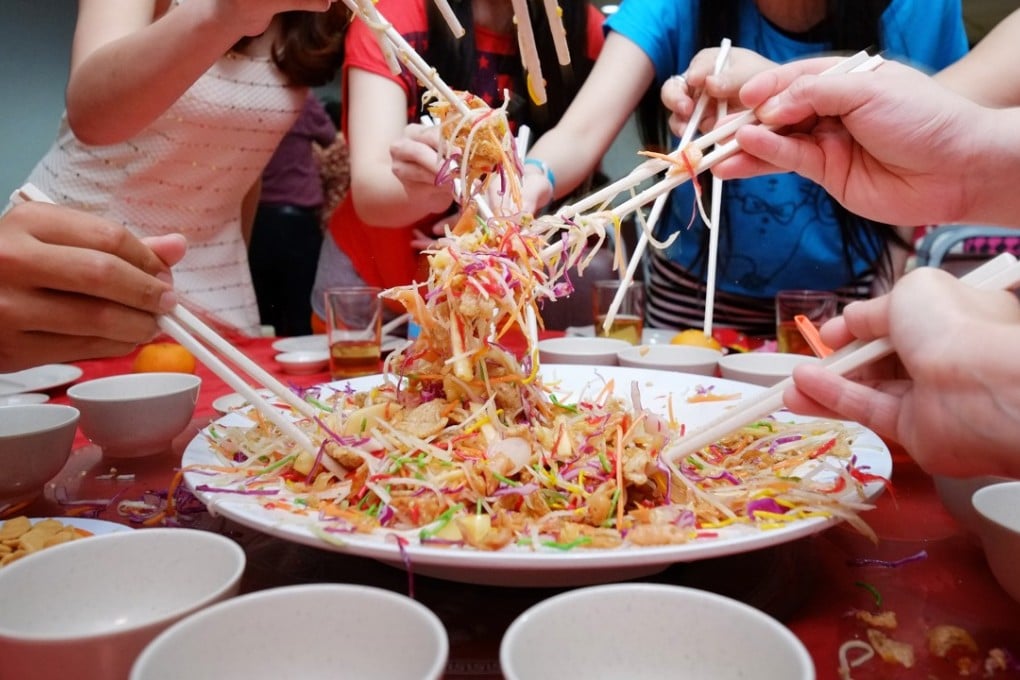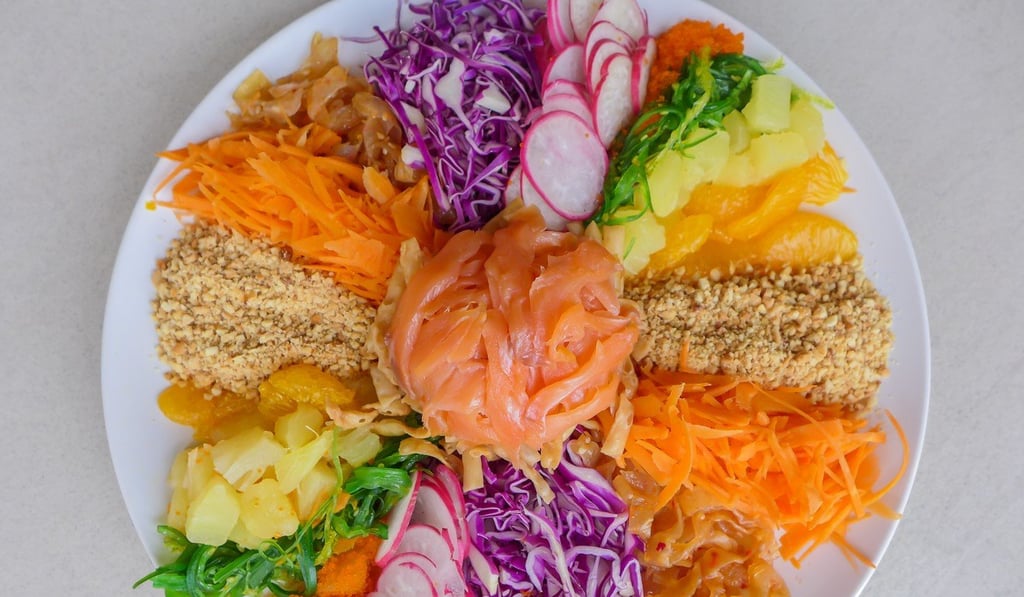Prosperity toss: where the Chinese New Year dish yu sheng comes from
The festive tradition involving raw fish and the dramatic tossing of ingredients can be traced back to Singapore and its “Four Heavenly Kings” of the 1960s

Until recently, when Hongkongers talked about “yu sang” (“raw fish”), they would have meant the Japanese interpretation – sashimi. But these days, around Lunar New Year, the term is also used to refer to the festive Singaporean dish that also goes by the names yu sheng, lo hei and prosperity toss.
In Singapore, yu sheng is a festive salad of sorts – a large platter of colourful, finely cut or grated ingredients, such as carrot, cucumber, white radish, pickle and, of course, raw fish, along with an array of condiments such as sesame oil, plum sauce, crushed peanuts, crisp deep-fried wonton skins, pepper and cinnamon.
Home cooks will have their own interpretations, with ingredients differing according to taste. And restaurants in Singapore have come up with decadent versions featuring the likes of abalone and gold leaf.

“It’s great also because it’s really communal – even the preparation – everyone gets in on it, arranging it nicely, and then everyone will hold an ingredient and have something auspicious to say about it as they add it to the dish.”
The name of each ingredient is usually a homophone of a word that is part of an auspicious saying; for instance, “yu” is the pronunciation for both the words “fish” and “abundance” – the latter being part of the greeting “nian nian you yu” (“may you have an abundance [of whatever you desire] every year”).
